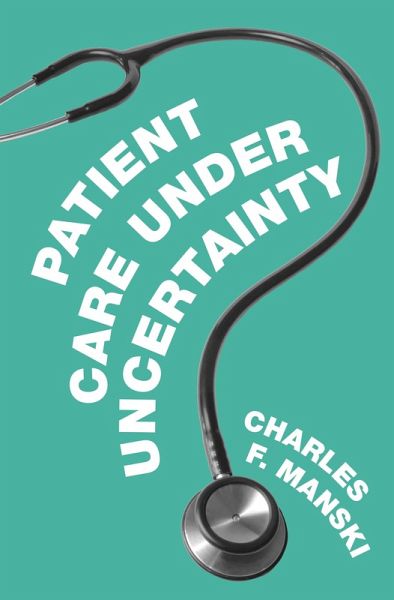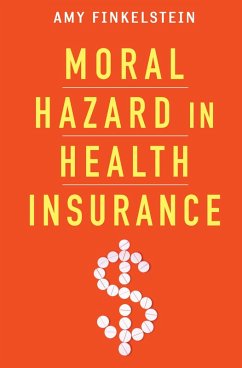
Patient Care under Uncertainty (eBook, ePUB)
Versandkostenfrei!
Sofort per Download lieferbar
30,95 €
inkl. MwSt.
Weitere Ausgaben:

PAYBACK Punkte
15 °P sammeln!
How cutting-edge economics can improve decision-making methods for doctorsAlthough uncertainty is a common element of patient care, it has largely been overlooked in research on evidence-based medicine. Patient Care under Uncertainty strives to correct this glaring omission. Applying the tools of economics to medical decision making, Charles Manski shows how uncertainty influences every stage, from risk analysis to treatment, and how this can be reasonably confronted.In the language of econometrics, uncertainty refers to the inadequacy of available evidence and knowledge to yield accurate info...
How cutting-edge economics can improve decision-making methods for doctors
Although uncertainty is a common element of patient care, it has largely been overlooked in research on evidence-based medicine. Patient Care under Uncertainty strives to correct this glaring omission. Applying the tools of economics to medical decision making, Charles Manski shows how uncertainty influences every stage, from risk analysis to treatment, and how this can be reasonably confronted.
In the language of econometrics, uncertainty refers to the inadequacy of available evidence and knowledge to yield accurate information on outcomes. In the context of health care, a common example is a choice between periodic surveillance or aggressive treatment of patients at risk for a potential disease, such as women prone to breast cancer. While these choices make use of data analysis, Manski demonstrates how statistical imprecision and identification problems often undermine clinical research and practice. Reviewing prevailing practices in contemporary medicine, he discusses the controversy regarding whether clinicians should adhere to evidence-based guidelines or exercise their own judgment. He also critiques the wishful extrapolation of research findings from randomized trials to clinical practice. Exploring ways to make more sensible judgments with available data, to credibly use evidence, and to better train clinicians, Manski helps practitioners and patients face uncertainties honestly. He concludes by examining patient care from a public health perspective and the management of uncertainty in drug approvals.
Rigorously interrogating current practices in medicine, Patient Care under Uncertainty explains why predictability in the field has been limited and furnishes criteria for more cogent steps forward.
Although uncertainty is a common element of patient care, it has largely been overlooked in research on evidence-based medicine. Patient Care under Uncertainty strives to correct this glaring omission. Applying the tools of economics to medical decision making, Charles Manski shows how uncertainty influences every stage, from risk analysis to treatment, and how this can be reasonably confronted.
In the language of econometrics, uncertainty refers to the inadequacy of available evidence and knowledge to yield accurate information on outcomes. In the context of health care, a common example is a choice between periodic surveillance or aggressive treatment of patients at risk for a potential disease, such as women prone to breast cancer. While these choices make use of data analysis, Manski demonstrates how statistical imprecision and identification problems often undermine clinical research and practice. Reviewing prevailing practices in contemporary medicine, he discusses the controversy regarding whether clinicians should adhere to evidence-based guidelines or exercise their own judgment. He also critiques the wishful extrapolation of research findings from randomized trials to clinical practice. Exploring ways to make more sensible judgments with available data, to credibly use evidence, and to better train clinicians, Manski helps practitioners and patients face uncertainties honestly. He concludes by examining patient care from a public health perspective and the management of uncertainty in drug approvals.
Rigorously interrogating current practices in medicine, Patient Care under Uncertainty explains why predictability in the field has been limited and furnishes criteria for more cogent steps forward.
Dieser Download kann aus rechtlichen Gründen nur mit Rechnungsadresse in A, D ausgeliefert werden.













